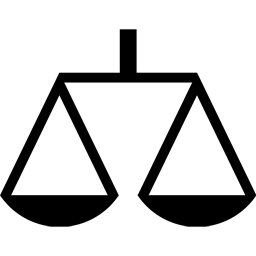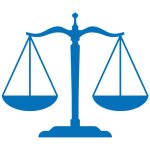Best Tax Lawyers in Senegal
Share your needs with us, get contacted by law firms.
Free. Takes 2 min.
Or refine your search by selecting a city:
List of the best lawyers in Senegal
About Tax Law in Senegal:
Tax law in Senegal is governed by the General Tax Code, which outlines the rules and regulations related to taxation in the country. Taxes in Senegal may include income tax, corporate tax, value-added tax (VAT), property tax, and more. It is important to understand these laws to ensure compliance and avoid any legal issues.
Why You May Need a Lawyer:
You may need a lawyer for tax-related issues in Senegal if you are facing an audit from the tax authorities, have questions about your tax obligations, are in need of tax planning advice, or if you are involved in a tax dispute. A lawyer can help you navigate the complex tax laws and ensure that your rights are protected.
Local Laws Overview:
Some key aspects of tax laws in Senegal include:
- Income tax rates range from 0% to 30%, depending on the individual's income level.
- Corporate tax rate is 30% for resident companies and 35% for non-resident companies.
- VAT is levied at a standard rate of 18% on most goods and services.
- Property tax is based on the value of the property and is payable annually.
Frequently Asked Questions:
Q: What is the deadline for filing taxes in Senegal?
A: The deadline for filing taxes in Senegal is typically March 31st of the following year.
Q: Are there any tax incentives for businesses in Senegal?
A: Yes, there are various tax incentives available for businesses in Senegal, such as tax breaks for investment in certain sectors or regions.
Q: Can I appeal a decision made by the tax authorities in Senegal?
A: Yes, you have the right to appeal a decision made by the tax authorities through the appropriate channels.
Q: How can I reduce my tax liability in Senegal?
A: There are legal ways to reduce your tax liability in Senegal, such as taking advantage of tax deductions and credits or engaging in tax planning strategies.
Q: What are the consequences of tax evasion in Senegal?
A: Tax evasion in Senegal can result in heavy fines, penalties, and even criminal prosecution.
Q: Do I need to pay tax on foreign income in Senegal?
A: Yes, residents of Senegal are generally taxed on their worldwide income, including income earned abroad.
Q: How can I check my tax status in Senegal?
A: You can check your tax status in Senegal by contacting the tax authorities or consulting with a tax lawyer.
Q: Can I request a tax refund in Senegal?
A: Yes, if you have overpaid taxes or are eligible for a refund, you can request a refund from the tax authorities.
Q: Are there any tax treaties that Senegal has with other countries?
A: Yes, Senegal has tax treaties with several countries to prevent double taxation and promote international cooperation on tax matters.
Q: How can a tax lawyer help me with my tax issues in Senegal?
A: A tax lawyer can provide guidance on tax planning, represent you in tax disputes, help you navigate complex tax laws, and ensure that your rights are protected.
Additional Resources:
For more information on tax laws in Senegal, you can visit the website of the General Tax Directorate (Direction Générale des Impôts) or consult with a local tax advisor.
Next Steps:
If you require legal assistance with tax issues in Senegal, it is recommended to seek advice from a qualified tax lawyer who is knowledgeable about the local tax laws and practices. They can help you understand your rights and obligations, represent you in dealings with the tax authorities, and ensure that you are in compliance with the law.
Lawzana helps you find the best lawyers and law firms in Senegal through a curated and pre-screened list of qualified legal professionals. Our platform offers rankings and detailed profiles of attorneys and law firms, allowing you to compare based on practice areas, including Tax, experience, and client feedback.
Each profile includes a description of the firm's areas of practice, client reviews, team members and partners, year of establishment, spoken languages, office locations, contact information, social media presence, and any published articles or resources. Most firms on our platform speak English and are experienced in both local and international legal matters.
Get a quote from top-rated law firms in Senegal — quickly, securely, and without unnecessary hassle.
Disclaimer:
The information provided on this page is for general informational purposes only and does not constitute legal advice. While we strive to ensure the accuracy and relevance of the content, legal information may change over time, and interpretations of the law can vary. You should always consult with a qualified legal professional for advice specific to your situation.
We disclaim all liability for actions taken or not taken based on the content of this page. If you believe any information is incorrect or outdated, please contact us, and we will review and update it where appropriate.
Browse tax law firms by city in Senegal
Refine your search by selecting a city.













